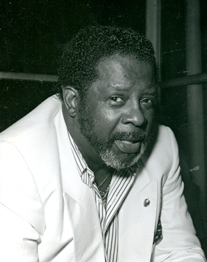I‘ve been struggling a lot, lately, with the frustration of being pulled in too many directions and, as a result, feeling as if nothing is being done well enough. (I am also, by the way, increasingly in awe of how people manage to be parents, family members, and career people all at the same time. Especially anyone in a creative field, where big chunks of quiet, focused, and sernely undistracted mental time are required in order to produce anything of value.)
On one level, I actually recognize that getting my stepson-to-be successfully prepared and launched into whatever college track or plan is going to make him a happy, balanced person in the world is more important than whether I get a feature article in The Atlantic, or get a New York Times bestselling book published. Just as it’s more important to get my aging parents’ house successfully cleared out, and my parents happily resettled into a new and more suitable home for them.
And yet, the pressure of career expectations pulls at me. I’m used to excelling at everything I do. And we certainly hear enough about these super people who seemingly manage to have families, keep in marathon shape, and simultaneously broker peace agreements in the Mid-East without breaking into a sweat. Or entrepreneurs who become billionaires with innovative, change-the-world products that become the buzz and baby of media and Wall Street alike.
In point of fact, I’m writing a book about passion (which, like everything else, isn’t getting enough of my time or attention these days), and I’m writing about some of those change-the-world types of entrepreneurs and trailblazers. I have a lot of admiration for them. And I share some of their passion. But I’m realizing there is a difference between us.
I interviewed one of those world-changing entrepreneurs last week and asked him what the greatest cost was of continuing to pursue his vision in a new start-up company. “Time with my family,” he said. “I missed my daughter’s entire college career. And I’ve missed most of my youngest kid’s high school events and time, as well.” The wife of another world-changing entrepreneur told me that when their son had been asked by his kindergarten teacher to draw a picture of his father, he drew his father with a suitcase in tow.
I certainly possess more than the average share of passion for my own vision in life. It’s led me to pursue a freelance writing career, a pilot’s license, and adventures on six continents. And yes, I’d love to have a bestselling book in print–especially given that I have two books in process, waiting for the time and focus to finish them. But in the end, I’m realizing that my passion for my own pursuits does not trump my passion for making sure that those closest to me are okay. I’ve often said that accomplishments come down to “how badly do you want the mountain?” I want the mountain … but not badly enough to sacrifice either my time with, or my ability to meet the important needs of, those who love and depend on me.
The tough thing about that position is letting go of the mountaintop. Knowing that it is within my capabilities, but not within my reach–at least, at the moment–without letting go of other priorities and obligations that, in the end, I’m not willing to sacrifice. Coming to peace with that truth is tough, in our achievement-focused world.
But as the holidays approached last week, I got a bittersweet reminder of another truth: that the world is actually changed in many ways. And that letting go of the high-profile and grand achievements can be just as important, and just as significant in impact, as letting go of other things in order to focus on those bigger visions and pursuits.
 The reminder came by way of the death of a man I’d known my whole life. Jim Rice was the same age as my parents, and I knew him through the small commuity church that both of our families attended, while I was growing up. But I was stunned to read in his obituary that in his youth, he’d played for the NY Giants football team. Because he never once mentioned it. For many people, that would have been the highlight; the athletic equivalent of a book on the NY Times bestseller list.
The reminder came by way of the death of a man I’d known my whole life. Jim Rice was the same age as my parents, and I knew him through the small commuity church that both of our families attended, while I was growing up. But I was stunned to read in his obituary that in his youth, he’d played for the NY Giants football team. Because he never once mentioned it. For many people, that would have been the highlight; the athletic equivalent of a book on the NY Times bestseller list.
But that’s not what I remember Jim Rice for–or, indeed, what anyone remembers him for. The obituary also said that he owned two businesses of his own, and had worked as an environmental consultant. I never knew about that, or cared about that, either.
If I found myself so profoundly sad at his passing, it was because when I was a kid, Jim Rice was one of those people who made my world feel good, safe and secure. I had no idea that he had worked two full-time jobs, his entire working career, in order to pay for not only his own six children and their education, but for a large number of foster children-so many, over the years, that the family isn’t even quite sure of the exact number who passed through their lives.
But what I remember is the difference Jim Rice made to those around him-in the church, and in the community at large. About the time I was born, Ridgeview Congregational Church (the neighborhood church my family belonged to) became the first integrated UCC church in America. Its pastor had decided that the church, historically all-white, should reflect and be an integral part of its neighborhood, which had become one of the few integrated neighborhoods in the city. So he knocked on the doors of the African-American families in the neighborhood and told them he needed them to join the church. The next pastor did the same. Which is how the Rices came to join the church.
The integration of the church took place in the midst of the 1960s Civil Rights struggles, in an era of racial tensions, as well an era of violent anti-war protests and angry, disaffected youth rebellion. And yet, there was little of that within Ridgeview–in no small part because of Jim Rice. Jim loved everybody, regardless of skin color, and the example he set made it difficult for anyone else to sub-divide into cliques or attitudes of racial division. If Ridgeview had a common community feel in those days, despite its pionering integration efforts, it was in large part, I think, because Jim set that tone. Years later, I attended a jazz concert Jim had set up in the church. I was one of perhaps six white people there (out of 200), and yet, I felt completely at home in that environment, just as I had my whole childhood. (I also still remember my jaw dropping when one of the musicians said that a dear friend, who was in town, had agreed to perform a couple of numbers, and said, “Will you please welcome Miss Etta James!” Which is how I got to meet one of greatest jazz singers of all time.)
Jim Rice made things happen. And he did it with such enthusiasm and passion that he made everyone else want to be part of those things. For example, Jim was the force behind “Cola House”–a drug and alcohol-free nightclub for teenagers that Jim corralled other men in the church (including my dad) to help him supervise, Friday and Saturday nights. (The obituary said it was the first community youth center organized in the city.) That, too, was integrated, and it soon attracted youth from not only all over the city, but from nearby towns, as well. It didn’t make Jim any money or get him any career kudos, but it kept scores of kids out of trouble, and helped build another bridge between races and generations. This from a guy already working two jobs and with more than six children of his own to manage.
How do you quantify that kind of life achievement? Jim Rice was never a famous football player. I don’t even know what he could have achieved in his career, had he not been so focused on taking care of the kids and community members around him, but it’s a good bet that he traded off more than a few personal achievements along the way–not to mention time for himself.
And yet, Jim Rice changed the world for a whole lot of people. Me included. My childhood was far richer for my exposure to, and friendships with, the African-American members of that church. And I always had the sense, if Jim Rice and my dad were around, that the world was not only full of laughter and possibility, but also safe–and that everything was going to turn out okay.
A very wise friend once said to me that being the best at something didn’t make you great. It only makes you accomplished. That greatness came from within, and many of the greatest people were not ever the best at anything. At the time, I thought he only meant that talent wasn’t everything. But an equally important part of the equation, I think, is that being great often means sacrificing your own goals to help, or for the good of, others around you. Even if there’s rarely any public recognition for that kind of greatness.
James Rice was never famous, rich, or publicly acclaimed. But he was an inspirational role model who made you believe that nothing was impossible–because to him, nothing was. Even if his life didn’t always go the way he might have wished. He was also a great man, in my friend’s best definition of the word, who made a significant and positive difference in a whole lot of people’s lives.
There’s a thought worth pondering in that, somewhere–especially as we take stock of how we lived and what we did in the year that’s coming to an end … and consider how we want to go about living in the new year to come.






“Group think” on accomplishment is not correct on the definition of the totality of individual impact. Society needs a cornerstone shift on this matter…I certainly do!
I would rather have scores of people attend my funeral because I touched their lives, than a cover on a magazine for being “famous.” Thank you for writing this article and highlighting the impact of a great humble man.
Years ago I used to say that I was tired of just warming up things…that like a magnifying glass I wanted to set things on fire!! Fire would have come from focusing on something: “One Thing” as the character played by Jack Palance on that movie City Slickers said. I know that works because I have seent it happen…I also know the price to be paid for that too. “Being a grown up” is probably about not just living for your own personal interests (as a child does), but living for the benefit of the ones we care. Greatness I agree, probably comes by living for the benefit of those not even close to us as in Jims’ case. Thank you very much for sharing his example with us.
I am still trying to find “the balance” on things around me…I am now used to just warming up things: still doing way too many things, but still enjoying life and dreaming about setting something on fire!